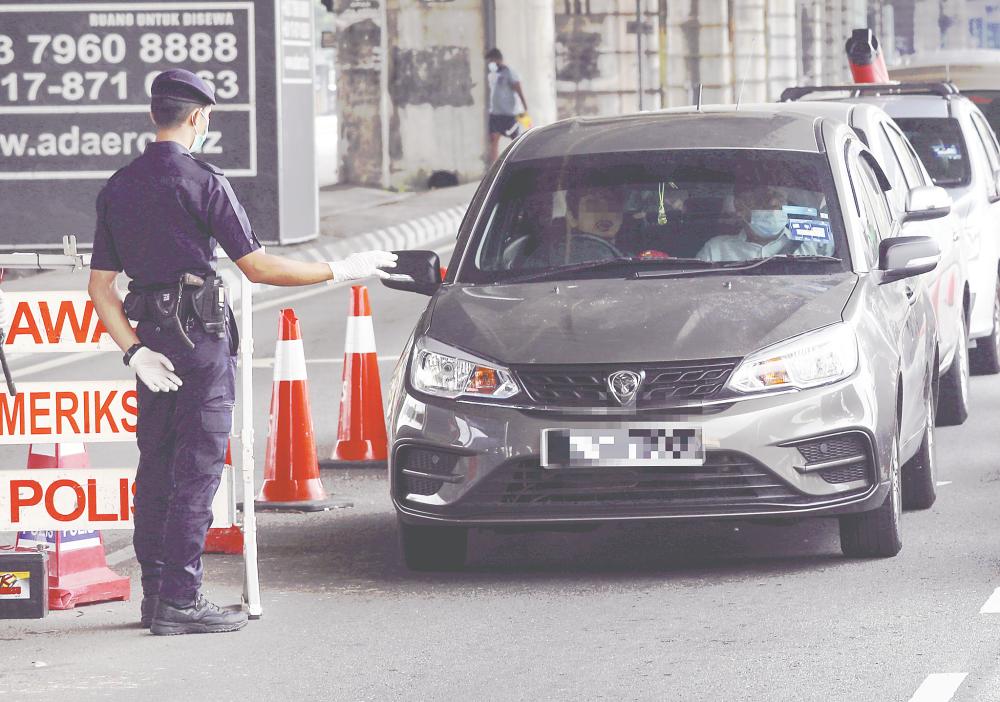PETALING JAYA: The public must be aware of their civil rights to protect themselves against potential abuse of power by law enforcement officers, said Malaysia Cyber Consumer Association president Sirajuddin Jalil.
“If one’s rights are violated or if certain irresponsible officers misuse the law for personal gain, the public has the right to act by lodging a police report” he said, adding that the police force is fundamentally an integrity-driven body though the risk of its members abusing their authority cannot be ignored.
Sirajuddin was commenting on Inspector-General of Police Tan Sri Razarudin Husain’s recent statement that the police have the authority to inspect a person’s mobile phone if they suspect a crime has been committed.
Razarudin said this is based on provisions under Section 233 of the Communications and Multimedia Act 1998 which allows access to computerised data, including mobile phones.
He added that Section 116B of the Criminal Procedure Code (CPC) also permits access to mobile phones which are considered computerised data.
Sirajuddin said police must strengthen internal integrity measures and implement audits to rebuild public trust.
“Proper documentation and accountability are crucial to preventing arbitrary phone inspections without reasonable cause as such actions breach privacy and fundamental human rights.
“The key question is how far police can go when checking mobile phone content. Everyone has personal content on their devices and such investigations can cause panic and fear among the public, which is why it becomes critical for the public to know their civil rights to protect themselves.”
He added that anyone could potentially become a crime suspect due to the advanced techniques used by cybercriminals such as “spoofing” which involves altering email addresses, sender names, phone numbers or websites to deceive individuals into believing they are engaging with a trusted source.
Sirajuddin stressed that the scope of police authority to inspect mobile phones should be communicated more clearly and constructively, and this should include public education on existing laws as many are unaware of their existence or relevance.
Lawyer and former Selangor Bar chairman Kokila Vaani Vadiveloo said under certain conditions, the police can inspect a mobile phone without a warrant “where there is reasonable suspicion of criminal activity”.
She explained that while Section 23(1) of the CPC provides the legal basis for searches and seizures without a warrant, clearer guidelines are needed to avoid ambiguity.
“The law’s broad language can lead to misinterpretation and potentially abusive actions by law enforcement officials. For instance, the definition of ‘reasonable suspicion’ is not always clear and there may be inconsistencies in how it is applied across different cases,” she said.
Kokila suggested that clearer procedural guidelines for situations involving mobile phone inspections along with specific legal protections for digital privacy could help ensure the law is used fairly and consistently.
“While the concept of reasonable suspicion allows for certain searches or seizures, it can also conflict with an individual’s right to privacy as implied under Article 5 of the Federal Constitution which relates to the right to personal liberty.”
She stressed that to avoid infringing on personal privacy without proper and lawful justification, enforcement officers must ensure “reasonable suspicion” is not abused or arbitrarily applied based on a mere hunch or notion that a crime may have been committed.
“If a person is uncertain about the legality of the police’s request to inspect their mobile phone, they can seek clarification or request the presence of a lawyer. Individuals must understand their rights, including the right to challenge unlawful searches or seizures in court,” she said.









